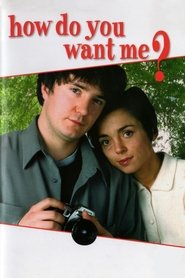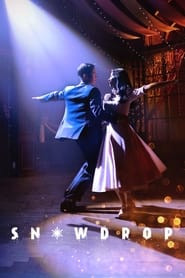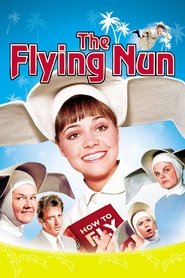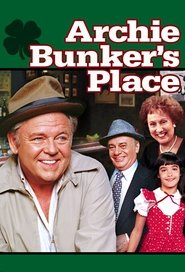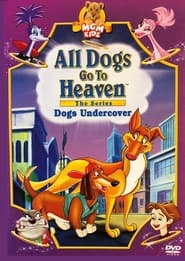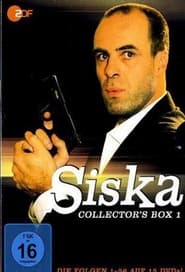Popular Romance TV Series on Pantaflix - Page 299
-
GEAR Fighter Dendoh
2000
GEAR Fighter Dendoh
2000
star 5.8GEAR Fighter Dendoh is an anime series that aired in Japan. It ran for 38 episodes, from October 4, 2000 to June 27, 2001, on the TV Tokyo network and its affiliates. Japanese elementary school students Ginga Izumo and Hokuto Kusanagi are chosen by a giant robot known as Dendoh, and now have to work together to defend the Earth from the evil mechanical alien empire Garufa. -
KONOSUBA – An Explosion on This Wonderful World!
2023
star 7.3This feisty young wizard will stop at nothing to master the spell that saved her life: Explosion! Megumin, the “Greatest Genius of the Crimson Magic Clan,” has chosen to devote her studies to the powerful offensive magic used by her mysterious savior. Then one day, her little sister finds a black kitten in the woods. But this cat isn’t just a new furry friend—she’s the key to awakening a Dark God! -
Dragonaut: The Resonance
2007
star 7.7An asteroid is headed for Earth and in order to avoid Earth's impending destruction, the ISDA create the "Dragonaut" after finding a dragon egg under the ocean. This weapon's primary purpose is to destroy the asteroid when the time comes. However, they soon find out that the asteroid is not their only threat, as powerful dragon-like creatures, which are bent on destruction, appear. After witnessing a murder by one of the creatures, Jin Kamishina, a lonely 18-year-old boy who lost his family in a shuttle accident, gets involved in the mysteries of the dragons and becomes the chosen pilot of the Dragonaut. Helping him on his journey is Toa, a mysterious girl who saves him from falling to his death after the creature attacks him. -
How Do You Want Me?
1998
How Do You Want Me?
1998
star 7.7Following their marriage, Ian and Lisa move back to the village where she grew up, a village still dominated by her family. In order to try to fit in, Ian takes a job as the village photographer, a profession for which he is not really cut out. -
Playboyy
2023
Playboyy
2023
star 7.8Three friends dive into the dark side of the sex industry to find a missing person, facing their own fears and desires along the way. -
You've Been Had: Celebrity Edition
2021
star 5Super-fans of Hollywood celebs think they have won a lunch with their idol, but instead, find themselves on a hidden camera prank show. -
Dream in Red Mansions
1987
star 9.4Dream of the Red Chamber, first released in 1987, was a television series produced by CCTV, adapted from the classic 18th century Chinese novel of the same name. It gained enormous popularity for its music, cast, and plot adaptation, being regarded by many within China as being a near-definitive adaptation of the story. -
Snowdrop
2021
Snowdrop
2021
star 8.5In 1987, bloodied man Soo-ho jumps into a women's university dormitory in Seoul. Yeong-ro, a female student who fell in love with him at a group blind date, tends to his wounds as the dormitory is ensnared in intense surveillance. As Soo-ho's secrets unravel, he must eventually face the conflict between his heart to Yeong-ro and responsibility to his comrades, as well as to his sibling who awaits him in his home country. What will be of their fate? -
The Flying Nun
1967
The Flying Nun
1967
star 6.3Young Sister Bertrille uses her ability to become airborne to help others, whether they want it or not. Although her aims are always benevolent, her means are often bemoaned by Mother Superior. The other Sisters must cope with their beloved Sister's aerodynamics and antics as she flies in and out of trouble. -
11eyes
2009
11eyes
2009
star 7.4Satsuki Kakeru lost his sister by suicide and has been living a dull life ever since then. One day, he is transported into a bizarre world "Red Night" along with his friend Minase Yuka. In order to survive and escape from Red Night, he fights against Dark Spirits (Ralva) and Black Nights. -
Archie Bunker's Place
1979
star 6.5Archie Bunker's Place is an American sitcom originally broadcast on the CBS network, conceived in 1979 as a spin-off and continuation of All in the Family. While not as popular as its predecessor, the show maintained a large enough audience to last for four seasons, until its cancellation in 1983. In its first season, the show performed so well that it knocked Mork & Mindy out of its new Sunday night time slot. -
V: The Final Battle
1984
V: The Final Battle
1984
star 7.3A small group of human resistance fighters fight a desperate guerilla war against the genocidal extra-terrestrials who dominate Earth. -
Mahua's Fun Age
2022
Mahua's Fun Age
2022
star 6Shen Teng and Ma Li led the team to set off, with twelve wonderful worlds in the play, twelve immersive role games, and twelve smiling faces filled with tears. High-energy acting skills, hilarious reversals, and unexpected touches are all full. Twist all the staff, take you into the play! -
Kousoku Sentai Turboranger
1989
star 9.4Five high school students transform into Turborangers to defend the Earth from the Boma Hundred Tribes, who awoke from a 20,000 year-long sleep. They engage in battle using weapons developed by Doctor Dazai. -
Denied Love
2025
Denied Love
2025
star 8.5After being left alone and broken by her lover, 'Praenarin' must marry 'Khemjira', the daughter of her father's best friend who is younger than her, in exchange for the position of company president. Even though Praenarin says, "I will never love you. I absolutely will not love you.", Khem still insists, "I will wait and see. I will wait until the day that Rin loves Khem...with all her heart." -
All Dogs Go To Heaven: The Series
1996
star 5.9All Dogs Go to Heaven: The Series is an animated television series which aired from 1996 to 1998 in syndication and on the Fox Family Channel from 1998 to 1999, with 41 half-hour episodes produced in total. It aired on Cartoon Network in 1999 to 2000. It was produced by MGM Animation and was distributed by Claster Television. Don Bluth’s 1989 animated feature All Dogs Go to Heaven featured a roguish German Shepherd named Charlie who died, went to heaven, conned his way back to Earth for vengeance on his killer Carface and then found redemption through a little orphaned girl named Ann-Marie. The film was popular with audiences, spawning a sequel, All Dogs Go to Heaven 2 and this animated series. The theme song for the series is "A Little Heaven", written by Lorraine Feather and Mark Watters. The singers were Gene Miller of Nashville, Clydene Jackson-Edwards and Carmen Twillie. Most of the voice actors from the feature films reprised their roles in the series, including Dom DeLuise, Ernest Borgnine, Charles Ne -
Kakushigoto
2020
Kakushigoto
2020
star 7.9Single father Kakushi Goto has a secret. He’s a top-selling artist of popular erotic manga, but his impressionable young daughter, Hime, can never find out! Now he’s having to bend over backwards just to keep her inquisitive little mind from discovering what he does for a living. -
Bizaardvark
2016
Bizaardvark
2016
star 7.2The live-action comedy follows comedy duo Paige and Frankie, two quirky teens who write funny songs and create music comedy videos for their online channel. With the help of friend and aspiring agent Bernie plus Vuuugle stars Dirk and Amelia, the best friends embark on comedic adventures in their quest to take the video blogging world by storm. -
Bekaaboo
2019
Bekaaboo
2019
star 5.4Kiyaan Roy's bestselling erotica novel gifts him a life that appears as perfect as a dream. However, the deepest corners of his heart desire for a different kind of pleasure; a wild pleasure that comes with pain. One day he realizes that someone has been watching him and knows his secret. Someone, who is equally obsessed with the pleasure in pain. Surprised at his luck and tempted by the opportunity, he sets out to explore his dark fantasies with her. But things turn out to be wilder than his imagination and he ends up at the verge of losing everything he ever had-right from his reputation and career, to his family and fiancée. Will Kiyaan be able to reclaim his perfect life, or lose it all in this chase for the thrill in pain? -
Siska
1998
Siska
1998
star 7.5Siska is a German television series created by Herbert Reinecker and Helmut Ringelmann and broadcast since October 30, 1998 on the network ZDF. In France, the series was broadcast on France 3 and rebroadcast on 13th Street. It is a police drama and follows the adventures of Peter Siska and later Victor Siska. Anyway it wasn't the best surname for a policeman because in some languages word "Siska" has extremely close meaning to "Boob" or "Tit". So you'll never see this series on, for example, Russian television. Croatian Radiotelevision has however shown the series, despite 'Siska' having the same meaning in the Croatian language
 Netflix
Netflix
 Amazon Prime Video
Amazon Prime Video
 Apple iTunes
Apple iTunes
 Apple TV Plus
Apple TV Plus
 Disney Plus
Disney Plus
 Google Play Movies
Google Play Movies
 Paramount Plus
Paramount Plus
 Hulu
Hulu
 HBO Max
HBO Max
 YouTube
YouTube
 fuboTV
fuboTV
 Peacock
Peacock
 Peacock Premium
Peacock Premium
 Amazon Video
Amazon Video
 The Roku Channel
The Roku Channel
 AMC+
AMC+
 Kocowa
Kocowa
 Hoopla
Hoopla
 The CW
The CW
 Vudu
Vudu
 Starz
Starz
 Showtime
Showtime
 PBS
PBS
 Pantaflix
Pantaflix
 FXNow
FXNow
 Tubi TV
Tubi TV
 Kanopy
Kanopy
 Comedy Central
Comedy Central
 Crunchyroll
Crunchyroll
 Microsoft Store
Microsoft Store
 Redbox
Redbox
 Sun Nxt
Sun Nxt
 ABC
ABC
 DIRECTV
DIRECTV
 Crackle
Crackle
 Fandor
Fandor
 Plex
Plex



